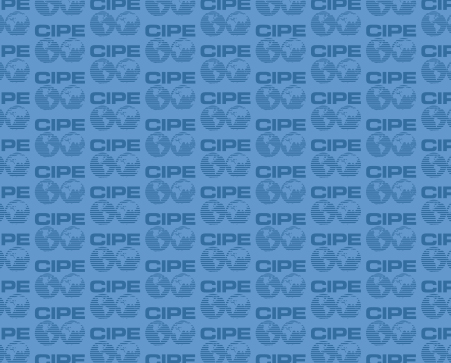
Here at CIPE, we are celebrating International Women’s Day by highlighting the achievements of the South Asia Regional Women’s Network, an informal group of 31 inspiring and empowered women from Nepal, Sri Lanka, Pakistan, India, and Bangladesh. Members of the network are business leaders and owners, board members, and senior managers who represent organizations with membership figures ranging from 100 direct members to nearly 4,000 members in Bangladesh.
They are women who have overcome great obstacles to build their careers, and their businesses, and are now giving back to other women seeking to do the same thing by building the capacity of their organization pushing for policy reform. Over the last four years, the network has come together nearly ten times to exchange information and best practices, to establish mentorship links between weaker and stronger organizations, and to build relationships between women in business, as well as between entire organizations, across the region.
Not long after the launch of this program, these organizations have grown in strength and numbers and have seen solid advocacy successes that have started to reshape economic policy, easing the burden of doing business for women and improving access to credit helping women to scale their businesses and bring more women into the workforce.
On this day, we honor these women who have dedicated their time and their efforts to improving their societies and advocating for change. Today we celebrate the women, past and present, who have been trail blazers for gender quality and for women’s empowerment.
Here at CIPE, those women are the members of our regional network. And these women have shared not only their personal stories, but also stories of how, through time and hard work, systems can be reshaped to support them and the women in business tomorrow. Through their organizations and their advocacy initiatives, the women in this network have shown how private sector and entrepreneurship can spark empowerment for women and lead to improved economic and political participation, how coming together to advocate policy reform can dismantle marketplace barriers, how policy wins create conditions for women-owned businesses to grow and thrive; and how women can amplify their success through motivation and encouragement from peers.
Read the full article here and join the broader conversation on gender quality on Twitter with the #IWD2016 hashtag.
The story is ongoing, and all are welcome.
Rachel Grossman is Program Coordinator for Eurasia & South Asia at CIPE
Published Date: March 08, 2016
